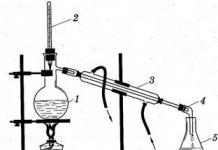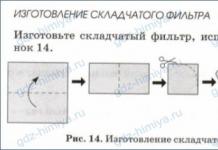Russian legislation is powerless before Themis from the village of Krasny, Smolensk region.
Established businessman Konstantin Ponomarev began his career as an assistant to the notorious head of Hermitage Capital Management investment fund William Browder, whom he helped create tax evasion schemes. However, he reoriented himself in time, and at the trial of Sergei Magnitsky he already testified against his former boss. The pinnacle of Ponomarev's career was the supply of generators for IKEA, for which the retail chain had to pay an amount comparable to the annual revenue in Russia. Then, with the help of Sberbank, the entrepreneur created a curious mechanism for storing money on his own (the funds seized from IKEA were transferred to a pocket company in trust), which allowed him to use interest on capital without paying taxes on profits. Not so long ago, the name of an IKEA opponent surfaced in connection with a blackout in Crimea: a businessman sued the Kubanenergo company for allegedly renting diesel generators from him. Now the plaintiff Ponomarev again took up his old victims. This time, the long-suffering IKEA will be robbed with the help of the provincial court, which serially makes decisions in favor of Konstantin Ponomarev.
The Krasninsky Court of the Smolensk Region arrested 9.3 billion rubles on the accounts of the Russian representative office of the IKEA corporation (IKEA Mos LLC). Thus, he satisfied Ponomarev's demands for the imposition of interim measures. As RBC reported, the entrepreneur is trying to recover 9.3 billion rubles from IKEA Mos. The court also banned inspections of the Federal Tax Service No. 13 for the Moscow Region from making any entries related to the reorganization of the company, including a merger or takeover, in the Unified State Register of Legal Entities.
“The IKEA group of companies does not agree with the ruling of the Krasninsky court, we consider it unreasonable, illegal and we are already challenging it,” the company’s press service said. At the same time, the IKEA representative described the actions of opponents "as the use of illegal schemes to obtain funds from the company."
“Konstantin Ponomarev artificially introduced an individual Alexei Tanko into the process in order to transfer the consideration of the case to the village of Krasny and return to the consideration of the circumstances that the Supreme Arbitration Court had already given its assessment. Alexey Tanko declared himself as a guarantor in IKEA cases, although the company never had any relationship with him, ”said an IKEA representative in the courts. In his opinion, in this way Ponomarev is once again trying to implement a scheme according to which IKEA funds are “instantly withdrawn from Russia to offshore”, as soon as the court of first instance decides in favor of the businessman.
These fears are confirmed by corporate law and bankruptcy lawyer Igor Mamaev. According to him, such a scheme "has nothing to do with jurisprudence" and is designed to delay the process. While the case is being transferred to another court, which in turn will make a decision, all the money that IKEA is trying to return will be withdrawn from the country, explains Mamaev.
Ponomarev has been at war with IKEA for ten years now. In 2006-2010, the parties had a dispute over the lease of power generators for hypermarkets in St. Petersburg. The entrepreneur accused the Swedish company of not paying their rent since July 2008. In 2010, the parties signed a settlement agreement, and Ponomarev's structures received 25 billion rubles from IKEA. However, then the businessman demanded to pay another 33 billion rubles. After a series of proceedings, the Supreme Arbitration Court of Russia ruled that all decisions of lower instances that rejected the claims of Ponomarev's structures against IKEA Mos are not subject to revision. However, in August 2016, the businessman filed a new lawsuit, and the Krasninsky court ruled to recover 507 million rubles from IKEA. In October, this decision was confirmed by the Smolensk Regional Court.
Ponomarev immediately ceded the right to claim this amount to the one-day company Alfa LLC. This LLC was registered on October 5, 2016, its sole owner is the offshore Kapaalex Consulting LTD, created in the British Virgin Islands, and Anastasia Pavlova is the general director. She also represents the interests of Ponomarev in courts. Now the dispute between the two companies - IKEA Mos LLC and Alfa LLC - will be considered by a court of general jurisdiction in the village of Krasny, and not by an arbitration court.
The creation of a "hidden" guarantor by manipulating the texts of contracts is not something new for Russian justice, lawyer Oleg Sukhov notes. This scheme allows disputes between companies to be transferred from the arbitration court to the court of general jurisdiction, and although the Supreme Court is actively fighting such practices, its instructions are still often not implemented.
However, the Krasninsky court could satisfy the application for the imposition of interim measures in connection with the actions of IKEA itself. On July 25, the company sent a letter to several thousand of its tenants about the beginning of the “reorganization” procedure, which stated that the funds in favor of IKEA Mos should now be transferred to the account of the newly created IKEA Centers Rus Operation LLC. The Krasninsky court could consider that as a result of the reorganization, the company is trying to get away from the execution of the court decision in the future.
It is not the first time that a court in the village of Krasny, Smolensk Region, as well as a local judge, Irina Tsutskova, has served Ponomarev's commercial interests. As previously reported, it was this judge who allowed the entrepreneur not to pay a record amount of 4.5 billion rubles in taxes out of 25 billion received under a pre-trial agreement from IKEA. On July 21 of this year, the same Tsutskova demanded that Kubanenergo return 71 mobile diesel generators to Ponomarev, allegedly rented from him and sent to the Crimea during the energy blockade. No matter how the power engineers argued that they had nothing to do with generators, or with the Crimea, or with Ponomarev, Tsutskova remained adamant - to return, and within the next 5 months.
At the end of August, Tsutskova again ruled in favor of Ponomarev, this time punishing IKEA with a ruble. The judge ordered the company to pay her friend "a penalty in connection with the non-purchase of diesel generators in the amount of more than 507 million rubles." Those same Ponomarev generators, from which IKEA, it would seem, finally fought back on June 11, 2014, when the Supreme Arbitration Court - the final instance for economic disputes - refused to meet the requirements of Konstantin Ponomarev's company. But judge Tsutskova, it turns out, turned out to be even higher than even the Supreme Arbitration.
Ponomarev Konstantin Anatolyevich (born August 4, 1971 in Moscow, RSFSR, USSR) is a Russian businessman and court brawler. He became famous for his litigation, including court cases with the Swedish company IKEA, which paid 25 billion rubles in his claims. Graduated from the Plekhanov Russian Academy of Economics. He studied on the same course with Sergey Magnitsky, a lawyer for Hermitage Capital investment fund, who died in 2009 in a pre-trial detention center.
Ponomarev Konstantin is married and has two daughters, Maria (born in 2006) and Ekaterina (born in 2009). The entrepreneur's parents: father - Anatoly Timofeevich (born 1938), specialist in the field of aeroelasticity, author of numerous scientific papers, mother - Lyudmila Pavlovna (born 1940). Konstantin's brother Vitaly Ponomarev (born 1964) is an employee of the Human Rights Center "Memorial", an expert on Central Asia.
Ponomarev Konstantin Anatolyevich - dossier:In 1995, Ponomarev Konstantin Anatolyevich co-founded the audit firm Firestone Duncan (Firestone Duncan LLC), receiving 51% of it and the position of general director. In 1996, according to media reports, due to a conflict with partners, he refused to share in the company. In March 2013, in the Tverskoy Court of Moscow, he testified in the case of accusing Sergei Magnitsky of tax evasion.
Ponomarev Konstantin Anatolyevich is known for his conflict with the Federal Tax Service No. 10 for Moscow, which suspects the entrepreneur of tax evasion in the amount of 8 billion rubles, which he had to contribute to the budget from the amount received from IKEA. According to Kommersant Daily, "this is the largest arrears in the history of Russia", and Ponomarev is "a record holder for tax evasion."
Ponomarev Konstantin Anatolyevich also appears in arbitration proceedings with companies controlled by billionaire Oleg Deripaska, a subsidiary of the British company Raven Russia, and in the high-profile Magnitsky case, in which he acted as a witness for the prosecution.
During his career, Ponomarev Konstantin Anatolyevich became a defendant in five criminal cases. All of them were closed at the request of prosecutors at various levels.
In June 2017, Konstantin Ponomarev was arrested for 2 months by the Presnensky Court of Moscow on charges of committing fraud and causing damage to the Kubanenergo company.
9.3 billion rubles were arrested on the company's accounts in Russia.
Krasninsky court of the Smolensk region arrested 9.3 billion rubles. on the accounts of IKEA in Russia at the request of businessman Konstantin Ponomarev, with whom the company has been in conflict for ten years. IKEA called the decision of the court illegal
Krasninsky court of the Smolensk region arrested 9.3 billion rubles. on the accounts of the Russian representative office of the IKEA corporation (IKEA Mos LLC), RIA Novosti reports. Thus, he satisfied the demands of businessman Konstantin Ponomarev for the imposition of interim measures. The entrepreneur is trying to recover 9.3 billion rubles. from IKEA Mos. Aleksey Tanko is listed as another co-respondent.
The court also banned inspection of the Federal Tax Service No. 13 for the Moscow Region from making any entries related to the reorganization of the company, including a merger or takeover, in the Unified State Register of Legal Entities, the agency reports, referring to the court ruling.
“The IKEA group of companies does not agree with the ruling of the Krasninsky court, we consider it unreasonable, illegal and we are already challenging it,” the company’s press service told RBC. At the same time, the IKEA representative described the actions of opponents "as the use of illegal schemes to obtain funds from the company."
“Konstantin Ponomarev artificially introduced an individual Alexei Tanko into the process in order to transfer the consideration of the case to the village of Krasny and return to the consideration of the circumstances that the Supreme Arbitration Court had already given its assessment. Alexey Tanko declared himself as a guarantor for IKEA, although the company never had any relationship with him, ”Ikea representative in courts Viktor Stepanov told RBC. In his opinion, in this way Ponomarev is once again trying to implement a scheme according to which IKEA funds are “instantly withdrawn from Russia to offshore”, as soon as the court of first instance decides in favor of the businessman.
These fears are confirmed by corporate law and bankruptcy lawyer Igor Mamaev. According to him, such a scheme "has nothing to do with jurisprudence" and is designed to delay the process. While the case is being transferred to another court, which in turn will make a decision, all the money that IKEA is trying to return will be withdrawn from the country and dissolved, explains Mamaev.
The conflict between Ponomarev and IKEA has been going on for ten years. In 2006-2010, the parties had a dispute over the lease of power generators for hypermarkets in St. Petersburg. The entrepreneur accused the Swedish company of not paying their rent since July 2008. In 2010, the parties signed a settlement agreement, and Ponomarev's structures received 25 billion rubles from IKEA. However, then the businessman demanded to pay another 33 billion rubles. After a series of proceedings, the Supreme Arbitration Court of Russia ruled that all decisions of lower instances that rejected the claims of Ponomarev's structures against IKEA Mos are not subject to revision. However, in August 2016, the businessman filed a new lawsuit, and with IKEA 507 million rubles. This is in October.
Ponomarev immediately ceded the right to claim this amount to the one-day company Alfa LLC, Stepanov claims. According to SPARK, this LLC was registered on October 5, 2016, its sole owner is the offshore Kapaalex Consulting LTD registered in the British Virgin Islands, and Anastasia Pavlova is the general director. According to Stepanov, she also represents the interests of Ponomarev in courts. Now, in violation of the law, the dispute between the two companies - IKEA Mos LLC and Alfa LLC - will be considered by a court of general jurisdiction in the village of Krasny, and not by an arbitration court, Stepanov concludes.
The creation of a "hidden" guarantor by manipulating the texts of contracts is not something new for Russian justice, lawyer Oleg Sukhov notes. This scheme makes it possible to transfer disputes between companies from the arbitration court to the court of general jurisdiction, and although the Supreme Court is actively fighting such practices, its instructions are still often not implemented, the lawyer states.
Maria Sidorova, head of the dispute resolution practice at Bureau A2, draws attention to the fact that courts of general jurisdiction, unlike arbitration courts, approach the issue of resolving applications for interim measures in a very formal way. “Some legal entities even artificially create a “sham” process in a court of general jurisdiction solely for the purpose of imposing interim measures,” says Sidorova. At the same time, according to her, it is extremely difficult to cancel the corresponding decision in a higher instance.
The Krasninsky court satisfied the application for imposing interim measures in connection with the actions of IKEA itself, namely the reorganization procedure that the company began in the summer of 2016, Anastasia Khudyakova, lawyer at the HEADS Consulting legal department, believes.
On July 25, IKEA sent a letter to several thousand of its tenants about the beginning of the “reorganization” procedure, which stated that funds in favor of IKEA Mos should now be transferred to the account of the newly created IKEA Centers Rus Operation LLC, RAPSI reports.
According to Khudyakova, the Krasninsky court could consider that, as a result of the reorganization, the company is trying to get away from the execution of the court decision in the future. However, given that the company is not being liquidated, this does not mean any evasion or bad faith on the part of IKEA, the lawyer argues. Thus, IKEA has a chance at appeal.
2017-02-10 13:18:57The decision of the Arbitration Court of the Moscow District cancels the verdict of the Tenth Arbitration Court of Appeal, which in 2016 considered the dispute between Rukon Limited Liability Company (a company owned by Konstantin Ponomarev) and the Swedish corporation IKEA. This instance allowed the businessman to file a lawsuit against IKEA again, believing that the new testimony of the former top manager of the network, J. Virtanen, radically changes the situation.
Litigation between the Swedish company and businessman K. Ponomarev has been going on for about 10 years. The Russian division of the Swedish corporation IKEA in 2006 entered into a lease agreement with Ponomarev's firm. A DIY retail chain needed diesel power plants to supply electricity to retail outlets in St. Petersburg. The conflict arose a few years later, when Lenenergo did not issue a permit to connect hypermarkets to power generators. The businessman went to court with a lawsuit in which he demanded a lease for DES. As a result, the parties settled the issue amicably, concluding a pre-trial agreement in 2010, which stipulated that the entrepreneur receives 25 billion rubles and waives any claims against the Swedish corporation.
Three years later, Konstantin Ponomarev again files a lawsuit, demanding that IKEA buy out the generators. Another firm, Rukon, acted as the applicant, to which the rights of claim to the Swedish network were assigned. Ponomarev demanded about 650 million rubles for DES, despite the fact that in the pre-trial agreement he undertook not to sue IKEA. Three judicial instances did not satisfy the claim, referring to the terms of the pre-trial agreement between the parties. However, the story did not end there - last year the investigative committee received a letter from the former top manager of the network, J. Virtanen, in which he confessed to giving false evidence against Ponomarev. In a confession, Virtanen wrote that under pressure from the lawyers of the network, he perjured himself in court. Using this fact, "Rukon" seeks to cancel the verdict of the arbitration of the Moscow region, issued three years ago. The attempt failed - the first court upheld the decision of the arbitration, motivating its conclusions by the fact that Virtanen's confessions are new evidence. A revision of the judgment is possible only under newly discovered circumstances.
Ponomarev decided to appeal the verdict to the Court of Appeal. The Tenth Arbitration Court of Appeal upheld the claims of the plaintiff and ruled that the entrepreneur can again demand that IKEA comply with the terms of the lease.
Swedish lawyers challenged the verdict. S. Shevchenko, an IKEA lawyer, said that the decision of the Court of Appeal is illegal, since Rukon operates on undiscovered circumstances, but refers to new evidence. According to the lawyer, it is necessary to cancel the decision of the appeal and leave the act of the Arbitration Court of the Moscow Region in force. P. Kazarez, representing Ponomarev (Rukon), insisted that Virtanen's testimony completely changes the case.
This dispute was considered by a judicial "troika" (chaired by S. Krekotnev). The court was interested in the reason why the ex-manager of IKEA decided to turn himself in. The representative of Rukon explained that Virtanen wanted to make public the fact of pressure on him by the lawyers of the Swedish corporation during the first trial. The cornerstone of the meeting was the decision of the Krasninsky court (on the recovery of 507 million rubles from IKEA), on which the arguments of the Court of Appeal were based. As it turned out, this decision was considered and canceled by the Supreme Court of Russia. As a result, Rukon's arguments did not become convincing evidence for the court, and the decision of the Moscow Arbitration Court was upheld. This fact indicates that the surrender and new testimony of J. Virtanen will not affect the course of litigation between Ponomarev and IKEA.
The production drama is striking in scale: former auditor Konstantin Ponomarev leased IKEA diesel power plants and bailed out billions of rubles - and then sued another $ 800 million. For reference, the fortune of entrepreneurs included in the Forbes list of the richest Russians starts at $ 600 million described in the February issue of the journal by Maria Abakumova).
In short, the plot is this. In 2006, the Swedes did not have time to turn on two St. Petersburg Megas to the power grid and rented stations from Ponomarev's company, who managed to work with the odious Jamison Firestone. In the contract, the managers obliged him to provide the malls with energy of a given capacity - but they did not specify by what means and, accordingly, a specific price. Ponomarev brought more and more generators to MEGA Parnas and MEGA Dybenko. Managers realized the mistake, but apparently they were afraid to upset the head of the Russian IKEA, Per Kaufman.
He found out that he was paying for electricity in an amount comparable to the output of a thermal power plant - but, apparently, he was also afraid of the wrath of the founder of IKEA, Ingmar Kamprad. Instead of paying something like a penalty and terminating the contract, Kaufman promised Ponomarev trouble. He rested, filed a lawsuit for 25 billion rubles and won. IKEA might have challenged the decision, but by connecting St. Petersburg malls to the power grid, Kaufman and his subordinates paid bribes. Therefore, IKEA paid Ponomarev almost a billion dollars, deciding that the PR scandal would cost more.
So an inconspicuous businessman drove a diesel almost into the "golden hundred". What conclusions follow from a non-trivial in terms of plot, but typical case?
The corporation is unable to control the regional managersBusiness is effective if it works according to the rules of a particular country - or even a city. This axiom needs to be clarified: as a rule, the headquarters is aware of regional peculiarities, but if you release the reins a little to the residents and tacitly sanction any of their actions, you can lose big. At the same time, it is clear that it is difficult to delve into the details of relationships from afar, but the plan must be carried out.
So in Russia Hewlett Packard, Daimler and Eli Lilly were pierced. But this disease is global - take at least the recent story in China, where the pharmaceutical company GlaxoSmithKline was suspected of bribing doctors. It has become customary for low-wage doctors in China to enter into relationships with drug sellers. GSK promoted Botox through them, with sales using personal email to correspond with doctors. But the secret became clear, and the US Department of Justice also became interested in the methods of the company.
The manager takes care of his ass firstThe entrepreneur is motivated by the hope of conquering the world, getting rich, solving some problem of humanity. He pays himself. The manager dances from the plan to which his wealth is tied. Other motives, even the best ones, do not work so well if instead of the planned compensation, he receives less.
The business owner rushes between extremes - to demand the growth of indicators that really tell something and to exclude falling over the edge of a foul. A manager can consider KPI to be nonsense and focus on his ideas of beauty - and show indicators that are either frankly fake or artificially driven to the desired mark.
All this means that the entrepreneur is not going anywhere, he is shackled to the company, and the manager is more free to choose. The only thing that keeps him from violating laws - corporate and regional - is the fear of ruining his reputation. But if the bonuses are large, he will take the risk. Thus, big corporations with high salaries are always under threat.
But the worst thing is when the company does not have a founder or a majority shareholder - instead, a consortium of funds or many small owners with an indifferent board of directors. In this case, top managers do what they want and solve their problems, turning a blind eye to the crimes of the middle and junior levels. All in share.
If you gave a bribe, you are in a weak positionOnce smeared, you give someone dirt on yourself. Different forces, from competitors to officials, get a button that can be pressed. This maxim is eloquently illustrated by the following fact. After the management of IKEA kicked out Kaufman and several other managers for tarnishing the great company with a scandal with bribes, Ponomarev rolled another lawsuit against the Swedish giant - for 36 billion rubles.
If you make a mistake, stop in time- in money you have already lost
IKEA managers screwed up three times. For the first time collectively - they could not draw up an agreement in such a way as to exclude manipulations by a cunning businessman. The second time - postponing the report of the CEO of the Russian headquarters. The third time Kaufman himself screwed up, who, it seems, decided to behave like a typical Russian businessman - to scare with an influential roof instead of agreeing. Yes, there was an unpleasant cunning figure sitting opposite him, but the tactics of pressure on him led to a loss of $ 800 million. Kaufman underestimated the risks and, perhaps, made a decision in the conditions of insufficient understanding of the opponent's capabilities. It was cheaper to put up with the loss of several billion rubles and not go hand to hand.
Business is an intellectual duel with elements of a mindfulness test"Change the world", "break the paradigm", "disrupt Facebook" - let's leave this to the incubators and their chicks. In business, everyone counts money and waits for you to make a mistake, overlook something, lose concentration in a stressful situation, think about something in negotiations, get distracted by urgent matters and miss a small amendment in the contract.
As Malcolm Gladwell wrote, in terms of instinct, the entrepreneur is like a predator - he does not attack a strong, ready-to-defend opponent. He waits and attacks only when he is sure of his success. One of the talents of an entrepreneur is to be able to wait and watch for the moment when the counterparty has swum.
Judging by what Forbes writes, this is exactly what happened to the expats at IKEA. The mistake of one manager, apparently, was superimposed on the inattention of another, the third decided to close his eyes, the fourth reported and went to rest in Turkey and was very surprised when he was urgently called to Russia. And Russia, she is like that - she will cling and will not let go, and hints of high connections will not help.
Cover photo: Fotobank/Getty Images


















